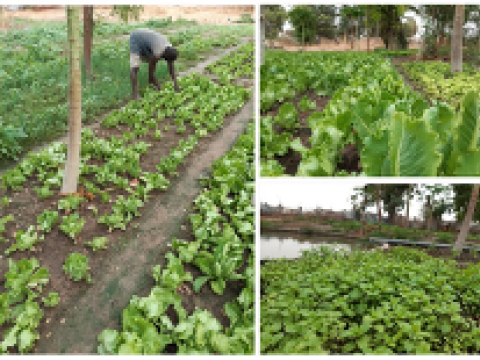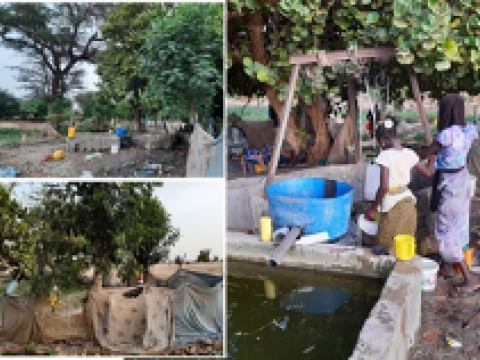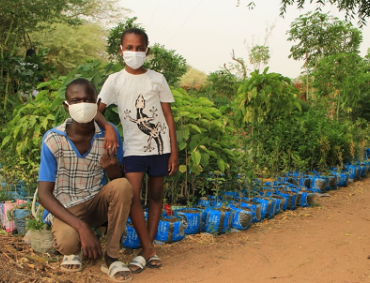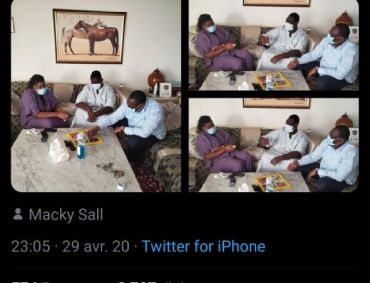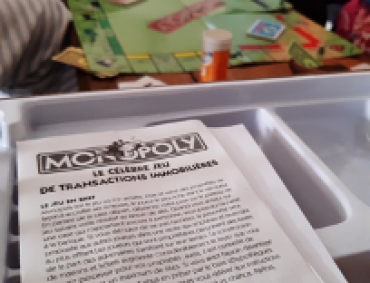Making Life Sustainable During Covid-19 (2)
When we bought the plants, we met Mbaye, who has a real garden where he grows vegetables and fruit trees. I was impressed by his knowledge, his courage, and his ability to maintain by irrigation this very beautiful and green garden, in an arid area where it only rains for three months.
The space is very rudimentary, the fence is made of large wooden stakes that support used mosquito nets. Inside, the plants are grouped in symmetrical strips of land, leaving paths for irrigation, which is done by hand. There is a well at the entrance to the garden, which he shares with other young people, and a piping system that allows the reservoir of each plot to be filled from the well. The temperature in the garden is very cool and the plants give off a good scent, Mbaye explains that this is because he doesn't use any chemicals, but rather manure made from organic matter. We had a very interesting discussion about this green space in the middle of an arid area and he told me that his parents used to market gardening in the 1970s and they passed on all the knowledge he has about producing safe edible fruit and vegetables. When he told me that the vegetables they produce are to be sold at the central market, I explained to him a little bit about the Street Food project and we promised to meet again after the health crisis for a longer discussion, with a view to finding a link between his work and street food.
Before the confinement, I hadn’t even imagined that within a 10 minutes’ walk from my home, there was this green space that contrasted very strongly with the desert environment I was used to.
Senegal
